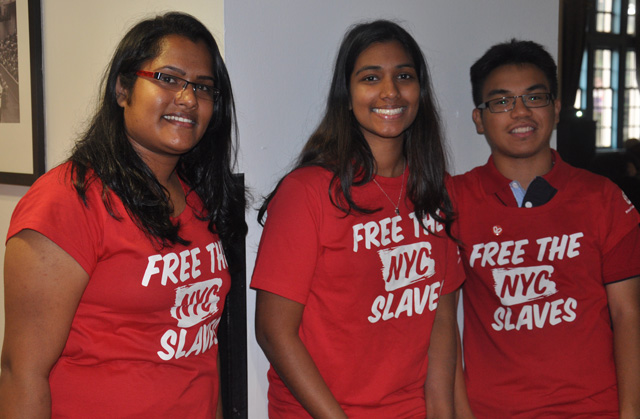Price of Life: A Discussion on Human Trafficking

By Marilyn Bryant
The Price of Life, a Lehman organization led by the InterVarsity Christian Fellowship, held a seminar on the many forms of human trafficking on October 9th.
The group has a presence on 17 campuses in New York City and Long Island and says it is inviting students to help change the misconception that human trafficking occurs only in third-world countries.
Numerous studies confirm that human trafficking is alarmingly prominent in the United States. The U.S. Department of State’s 2007 Trafficking in Person’s Report (TIP Report) estimates that 4-27 million people are victims of modern-day slavery across the world, while The Commercial Sexual Exploitation of Children study in 2000 estimates that 244,000 American children and youth are at risk of child commercial exploitation.
“Human trafficking is something that students are loosely aware of, but they usually do not know how close it really is,” says Greg Jao, 45, the National Field Director of the InterVarsity Christian Fellowship. “Fifteen to 30 brothels on average can be found around student campuses, especially in the city,” said Jao.
In the seminar, students learned the many forms that human trafficking can take, including forced labor of women and children, recruitment of child soldiers, and the most common, sexual servitude.
Jamie Castañer, 28, a campus staff worker at the InterVarsity Christian Fellowship for four years and a guest speaker at the seminar, said people need to be cognizant of the ways they may be inadvertently contributing to this problem. “We need to be mindful of all of our purchases,” Castañer said. “From our everyday pickups of coffee or chocolate to the major electronics like iPhones, many would be shocked to find how much of it is produced from the labor of children.”
During a Q&A, some students expressed doubts that they could have help stop human trafficking. “The goal is for people to become aware of the system that is right in their neighborhood, and for each individual to understand that their actions, no matter how small or big, will enact change,” said Ivan Paz, a community connections specialist for the Fresno Institute for Urban Leadership.

